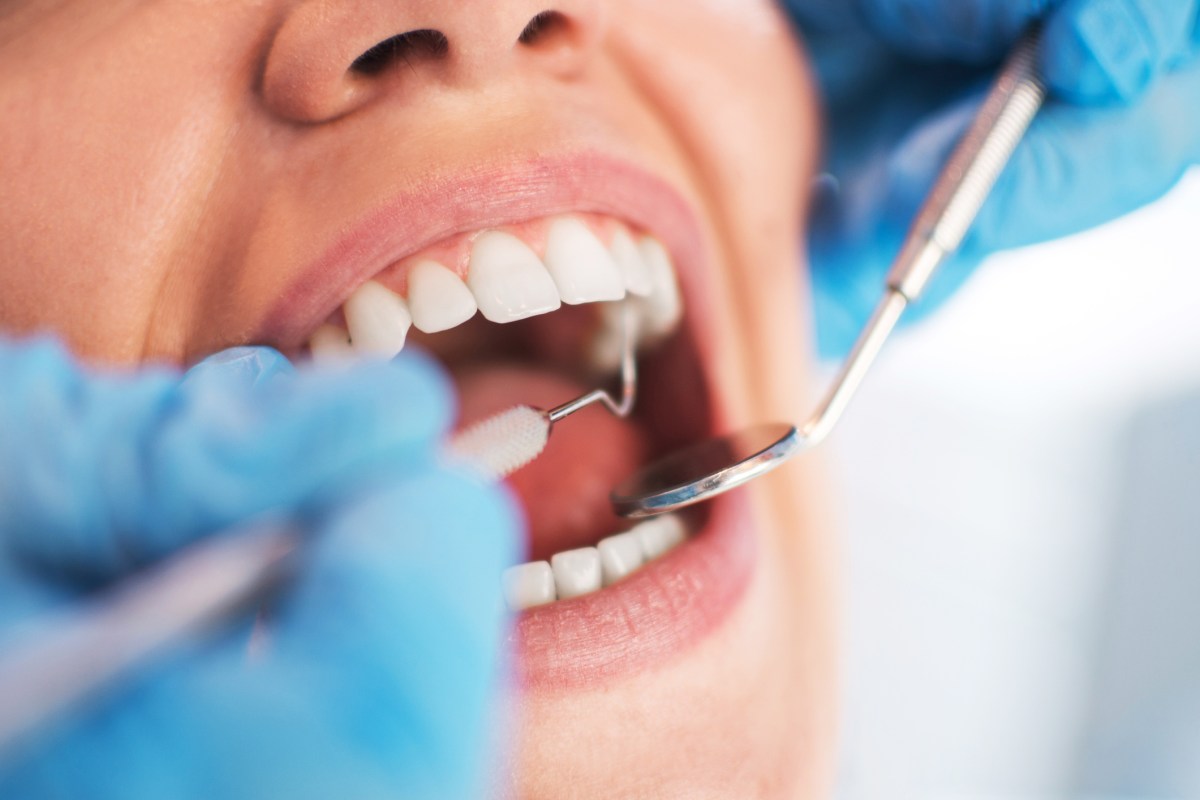Many people don’t give much thought to their oral health until they have a toothache. But taking good care of your teeth on a regular basis can help you avoid a host of health problems – both inside your mouth and beyond.
Good oral care helps ward off gum disease, also known as periodontal disease, which is a very common problem. According to the Cleveland Clinic, nearly half of adults age 30 and older – 47% – have some form of gum disease. Left untreated, gum disease can lead to tooth loss. It has also been associated with certain broader health problems, including diabetes, heart disease and dementia.
The good news is that gum disease is largely preventable and treatable.
Gum disease
Sugar and starches in the food you eat mix with bacteria in your mouth to form plaque, a sticky film, on the teeth. Brushing and flossing remove plaque, but it quickly reforms. If plaque remains on your teeth for an extended time, it can harden into tartar, or calculus, which requires a professional dental cleaning to remove. Plaque and tartar contain bacteria, and when they build up around your teeth and gums, you can develop inflammation and infection in your gums and the bone surrounding your teeth.
“Early gum disease, which is called gingivitis, is treatable and reversible,” says Keri Logan, D.M.D., director of the Stephen B. Gold Dental Clinic at St. Charles Hospital in Port Jefferson. “If left untreated, gingivitis can advance to periodontitis, which is treatable but not reversible. We can treat it and possibly maintain it, but the damage cannot be reversed.”
Periodontitis can lead to tooth loss. “This is because it affects not only the gums, but also the bone,” Logan says. “The bone recedes, and with this loss of height of the bone, your tooth becomes more mobile, and then you get more tartar, which will lead to more inflammation and eventually tooth loss.”
Preventing gum disease
According to Logan, “Everyone should be brushing their teeth at least twice a day for two minutes at a time, and flossing every day to remove debris that gets stuck inside the teeth.”
Although flossing is an integral component of oral hygiene, most Americans have stubbornly resisted adding it to their daily routine. According to a large study recently published in JADA (The Journal of the American Dental Association), only about one in three adults in the United States floss daily, and the prevalence of flossing increased only slightly from 2009 to 2020.
“There are new flossing products, such as water flossers and air flossers, which get between the teeth and make flossing more effortless,” says Logan. “If something is easier to do, people are more likely to do it, and air flossing or water flossing is better than not flossing at all.”
It is also important to visit your dentist twice a year for cleanings, exams, X-rays and routine dental work. “This allows any problems inside your mouth to be identified early, when they can be treated and sometimes reversed,” she says.
If your gums are bleeding, red or sore, this may be a sign of gingivitis or periodontitis.
“If you have these symptoms, do not wait to go to the dentist,” Logan says.
Connections to other illnesses
In addition to tooth loss, advanced gum disease has been associated with an increased risk for certain other diseases, including diabetes, heart disease and dementia.
“There is evidence that diabetes and periodontitis have a bidirectional link, in that if someone has diabetes, they are more likely to have periodontitis, and vice versa,” says Logan. “There are also links between periodontitis and cardiovascular disease and stroke. If our patients have periodontitis, we will refer them to their primary care doctor for a workup if they haven’t been to their doctor in a while.”
The connection between periodontitis and systemic disease is not fully understood. According to the National Center for Biotechnology Information, “a growing body of evidence is accumulating supporting the direct and indirect impact of periodontal pathogens on systemic health.” More studies are needed to develop a deeper understanding of the relationship between periodontitis and other chronic diseases.































